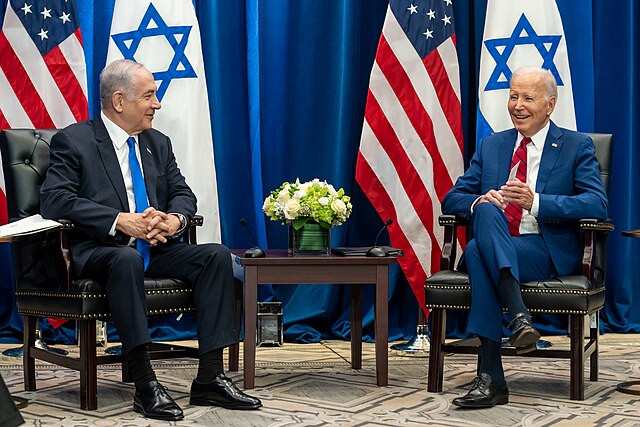Negotiators in Doha are finalizing a ceasefire agreement between Hamas and Israel that could see the release of 33 hostages during the first phase of implementation. Israeli officials indicated Monday that the deal, which also includes a 42-day cessation of hostilities, is nearing completion after months of intense diplomatic efforts.
A senior Israeli official, speaking on condition of anonymity, confirmed that most of the hostages expected to be released are believed to be alive. However, the remains of some deceased captives may also be included in the handover. Hamas and its allies currently hold 94 hostages, of whom at least 34 are dead, according to the Israeli government.
President Joe Biden expressed optimism during a speech Monday, highlighting U.S. involvement in the negotiations. "The deal we have structured would free the hostages, halt the fighting, provide security to Israel, and allow us to significantly surge humanitarian assistance to the Palestinians who suffered terribly in this war that Hamas started," Biden said. "They have been through hell."
Negotiators in Doha plan to meet Tuesday for a final round of proximity talks aimed at resolving outstanding issues. The Hostages and Missing Families Forum, an advocacy group for those affected by the conflict, expressed cautious optimism, stating, "We continue to trust in those working tirelessly to bring our loved ones home."
Under the agreement, Israeli forces would retain a presence along the Philadelphi Corridor on the Egypt-Gaza border during the ceasefire's first phase, a sticking point that derailed previous negotiations in September. Additionally, Israel plans to maintain a buffer zone within Gaza along its border, though the dimensions remain under negotiation.
Hamas has reportedly sought to limit the buffer zone to its pre-October 7 dimensions of 300-500 meters. Israel has proposed a much wider 2,000-meter zone, which has been a source of contention. Northern Gaza residents would be allowed to return to their homes, but Israeli officials indicated that unspecified "security arrangements" would be enforced.
The deal also involves the release of Palestinian prisoners, though those accused of killing Israelis would not return to the West Bank. Instead, they would be transferred to Gaza or sent abroad under arrangements with foreign nations.
Qadura Fares, head of the Palestinian Commission for Detainees and Ex-Detainees, announced he is traveling to Doha to provide guidance on the list of detainees to be included in the exchange.
Israeli officials credit Mossad Director David Barnea with achieving a breakthrough in the talks late Sunday during meetings with mediators in Qatar. "There is talk of an agreement in the near future - it is impossible to say whether it is a matter of hours or days," said an Israeli source.
Despite the optimism, the agreement must still pass Israel's security cabinet and face judicial review, allowing time for opposition to challenge the terms.
The conflict has exacted a devastating toll on Gaza, where over 46,000 Palestinians have been killed and more than 100,000 injured, according to the Palestinian Ministry of Health. Israel launched its offensive in response to Hamas' October 7 attacks, which left approximately 1,200 Israelis dead and 250 hostages captured.




